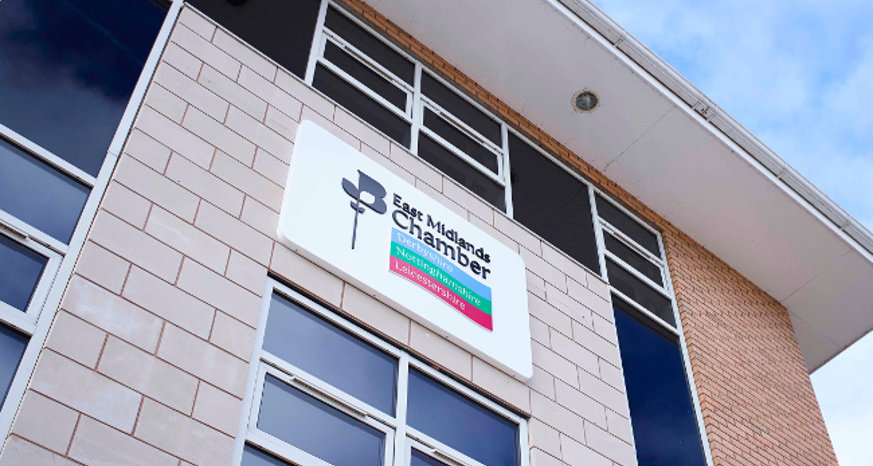Apprentices, entrepreneurs and STEM ambassadors are among those recognised at East Midlands Chamber’s Enterprising Women Awards this year.
Finalists have been announced for the 2021 awards, held in partnership with headline sponsor Futures Housing Group, across eight categories.
Alongside individual categories, topped off by the Business Woman of the Year, there are group awards including Small Business of the Year and Team of the Year.
The shortlisted individuals and companies will find out whether they have won at an awards ceremony on Friday 8 October, which is currently planned as a gala dinner in Nottingham.
It will be the headline event for the Enterprising Women network, which is co-chaired by Chamber president Eileen Richards MBE and past president Jean Mountain.
Eileen said: “The East Midlands is home to some fantastic success stories of enterprising women and it’s great to be able to celebrate the people, teams and businesses that help to make our region so great.
“These awards are a huge part of the Chamber calendar and we can’t wait for the big night, which we hope will be a physical celebration that we can all look forward to.”
Jean added: “As we approach the 25th anniversary of the Enterprising Women network next year, this is once again a very strong line-up in our awards shortlist.
“We’ve loved watching our finalists and winners in previous years go on to achieve great things, and I’m sure the class of 2021 will be no different.”
The finalists were announced at a special Enterprising Women event last night (Thursday 20 May), in which guest speaker Lindsey Williams, group chief executive of Futures Housing Group, spoke about her career journey.
The current Chamber vice-president is a passionate advocate for social housing and has played a key role in boosting the sector’s profile with central Government.
Lindsey said: “I’m delighted that Futures Housing Group is sponsoring the East Midlands Chamber’s Enterprising Women Awards for 2021.
“It’s been an absolute pleasure to read through the nominations from women across the region and I’m pleased to say we have seen some outstanding nominees.
“As a female leader, I know the challenges and barriers women can face in the workplace and when building a career. That’s why I really value the opportunity to champion, support and encourage enterprising women throughout the region.
“Hopefully the awards will inspire a new generation of women to step forward and be the leaders of the future. I wish all nominees good luck in the awards.”
For more information about the Enterprising Women network, click here.
Enterprising Women Awards 2021 shortlist
Business Woman of the Year (sponsored by Futures Housing Group)
Rowan Bradley, Children’s Therapy Solutions
Natalie Bamford, Colleague Box
Sandra Wiggins, DPI UK
Jillian Thomas, Future Life Wealth Management
Claire Twells, Smith Partnership
Helen Wathall, Wathall’s Funeral Directors
Female Entrepreneur of the Year (sponsored by Midlands Engine Investment Fund)
Rachel Hayward, Ask the Chameleon
Janice Holmes, Janice Rose Lingerie
Iwona Lebiedowicz, PAB Languages
Nicky Botham, Shed Grounds Maintenance
Jaz Kaur, Fraser Stretton Estate Agents
Social Commitment Award (sponsored by PPL PRS)
Bodie Hodges Foundation
CR Civil Engineering
Cross Productions
Halo Recruit
Hot House Music
Small Business of the Year (sponsored by Unique Window Systems)
Access Training
Balls2 Marketing
Breedon Consulting
Shed Grounds Maintenance
We Love Surveys
Female Employee of the Year (sponsored by Smallman & Son)
Vicky Evans, Air Ambulance Service
Ana-Andreea Covaliu, Design Studio Architects
Hollie Newton, EMA Training
Rosie McLaughlin, Embark Federation
Matilda Swanson, Loates HR Consultancy
Team of the Year (sponsored by She Inspires Global)
Astute Recruitment
Cross Productions
DPI UK
Futures Housing Group
RideWise
Outstanding Contribution to Work in STEM (sponsored by Pick Everard)
DPI UK
Emh group
JB Engineering
Midland Lead
Rail Forum
Apprentice of the Year (sponsored by EMA Training)
Evie Smith, Reckitt Benckiser (UK)
Brooke Dennis, Recruit 2 You
Courtney Bower, Recruit 2 You
Hannah Ward, Wytech
Bethany Less, Xbite






